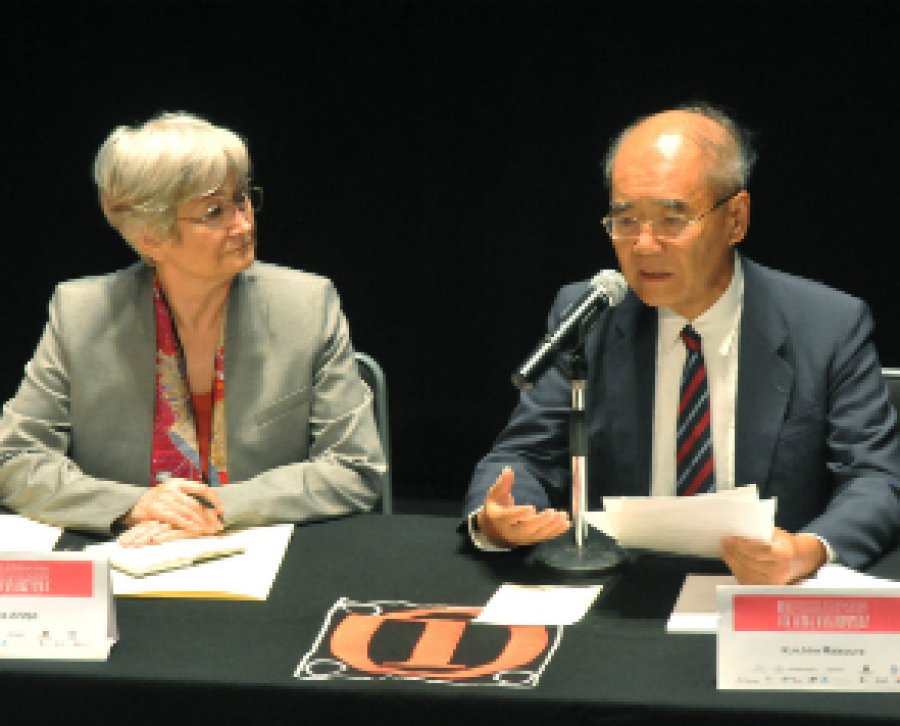Noticias
Congress on Experiences in Safeguarding Intangible Cultural Heritage
Mexico is recognized as a country that values and safeguards its intangible heritage
September 04, 2015
Cuernavaca, Morelos.- According to Koichiro Matsuura, former general director of the United Nations Educational, Scientific and Cultural Organization (UNESCO) Mexico is among the countries aware of the value of its intangible heritage and take steps to safeguard it, but unfortunately this is not the case of all nations.
Within his reflection and recognition of the role of Mexico and after offering his keynote speech within the III International Congress on Experiences in the Safeguard of the Intangible Cultural Heritage, he recalled that eight countries, so far, have not ratified the International Convention published by UNESCO in 2003.
At the international meeting, to be held in this city until September 6th, he said that among the missing nations of signing the document include: Canada, Australia and New Zealand (the latter two, for the issue of indigenous populations that remains a very sensitive subject).
He stressed that this is where the role of the international community and organizations like UNESCO are vital for safeguarding intangible heritage and cited the case of the province of Canada, where there is a very active community in protecting the indigenous heritage.
Matsuura who was at the head of UNESCO from 1999 to 2009 found that meetings such as the International Conference on Experiences in the Safeguarding of the Intangible Cultural Heritage are an important initiative to meet specialists who help clarify points and policy measures that can be taken in this field.
Throughout his talk at the Teatro Ocampo in Cuernavaca, Koichiro Matsuura spoke of the history and background of the International Convention for the Safeguarding of the Intangible Cultural Heritage, which its main objective is to protect the practices, representations, expressions, knowledge and techniques that communities, groups and, in some cases, individuals recognize as an integral part of their cultural heritage.
This intangible heritage is found in oral traditions, performing arts, social practices, festive events, knowledge and practices related to nature, the universe, knowledge and techniques associated with traditional crafts.
The Japanese diplomat explained that the masterpieces of the Oral and Intangible Heritage of Humanity make up a list maintained by UNESCO since 2001 and composed of elements of intangible cultural heritage that the institution considers relevant.
In 2008, ninety masterpieces of the Oral and Intangible Heritage of Humanity were proclaimed in this list. So far, 150 states worldwide have become party to the Convention, while in Latin America 28 countries have ratified or approved it.
By accepting, countries undertake to adopt a general policy aimed at promoting the function of intangible cultural heritage in society.
Amog the tasks ahead, Koichiro Matsuura pointed out the importance of promoting a convention to safeguard the languages because it is known that some of them are rapidly being lost and efforts must be made to save them.
In the III International Conference on Experiences in the Safeguard of the Intangible Cultural Heritage, speakers of Colombia, Ecuador, Chile, Argentina, Brasil, El Salvador, Panama, Honduras, Guatemala, United States, Canada, Senegal, Romania, South Africa, Spain, Poland and United Kingdom, as well as China, Japan and South Corea as guest countries will share experiences for four days at the simultaneous working tables.
There will also be presentations of books and documentaries, a workshop conducted by the Regional Center for the Safeguard of the Intangible Cultural Heritage of Latin America (Crespial) and examples of cultural traditions as chinelos, sayones and southerners corridistas of Morelos, as well as the drums of Okinawa, Japan.
Mexico,Distrito Federal
